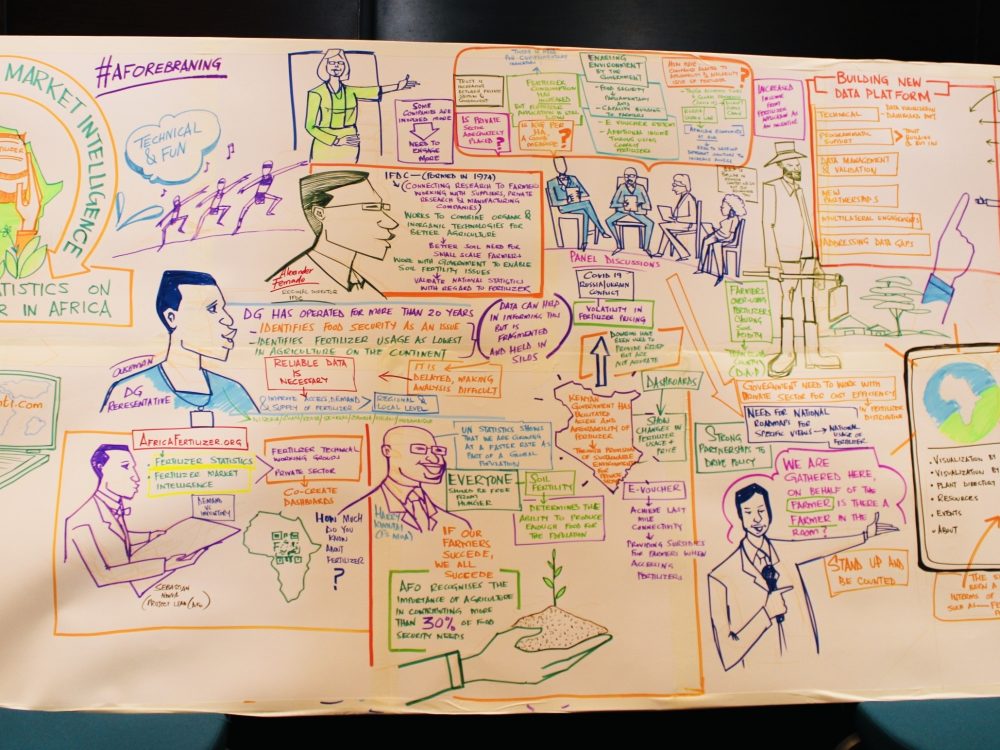MapAfrica: AfDB Geocoding for Greater Accountability
Geocoding (turning the location of development activities into coordinates that enable accurate placement on a map) has long been high on the agenda for those interested in the traceability of funding for development projects.
With this objective in mind, the African Development Bank (AfDB) is geocoding its entire portfolio of activities, by mapping the exact location of the operations it finances. This will also help the institution better integrate its actions with other national open data and geospatial initiatives, principally the Open Aid Partnership, USAID, and AidData.
In doing so, it will also improve AfDB’s ability to invest in areas where actions are most needed. Today all active projects approved between 2002 and 2012 have been geocoded (with the exception of budget support and institutional strengthening projects) and the geocoding of 2013 projects is currently underway. This means 575 operations and 5600 project locations are now geocoded.
Being able to understand which projects exist, where gaps are, and who is working on what to address these gaps, will help all parties make more informed and better coordinated choices. For example, overlaying planned interventions with open data from governments, other donors, researchers, or NGOs on population, poverty, disease, or other indicators will help to better target, and also better measure, results.
Geocoding also offers a powerful tool to close the feedback loop, by allowing beneficiaries to share their views on the success of the operations. The AfDB plans more civil society engagement in its efforts for more accountability to stakeholders, and to gauge the effectiveness of their projects, for example a beneficiary engagement project, in which stakeholders will be able to provide feedback by clicking on a project location on the MapAfrica platform.
We hope to roll out this beneficiary feedback pilot in approximately one year, and hope this learning experience will result in improved decisions and better project outcomes.
How is the geocoding being done?
AfDB worked with AidData to geocode its project locations according to the IATI 1.03 standard. The geocoded data were created using AfDB’s portfolio portal and project documents, which were processed by AidData researchers using a methodology which includes strict quality control measures.
The location references were pulled from Geonames.org, a geographical database, and were joined to administrative boundary files for each country allowing data users to have not only the point data, but also the administrative regions which govern each point. The data were then merged into the AfDB IATI feed for publication.
Currently, AfDB and AidData are working together to integrate geocoding into the Bank’s internal reporting systems, ensuring that data can be sustainably geocoded and reported to IATI.
Feedback from partners has been positive but numerous challenges remain. As with other organisations publishing a large amount of IATI data, one high priority is in strengthening systems and tools to make transparency part of the institution’s way of doing business. Reforms are already on-going as part of the broader results agenda at the AfDB.
One of the purposes of the International Aid Transparency Initiative (IATI) was to make information about aid not only more transparent, but easier for stakeholders in developing countries, and elsewhere, to actually use. Geocoding is one of the most exciting developments in this regard, meaning aid money can be traced to a close approximation of where its ultimate beneficiaries will be. We hope this inspires other publishers to explore the benefits of geocoding their IATI data.
Written by Sohir Debbiche, Consultant on IATI, AfDB, with contributions from: Olivier Shingiro, Senior Results Specialist, AfDB, Joshua Powell, Innovation Team Manager, Development Gateway, Joni Hillman, Aid Transparency Programme Manager, and originally published as Geocoding: A Route To Deeper Transparency For The AfDB
Share This Post
Related from our library

Building a Sustainable Cashew Sector in West Africa Through Data and Collaboration
Cashew-IN project came to an end in August 2024 after four years of working with government agencies, producers, traders, processors, and development partners in the five implementing countries to co-create an online tool aimed to inform, support, promote, and strengthen Africa’s cashew industry. This blog outlines some of the key project highlights, including some of the challenges we faced, lessons learned, success stories, and identified opportunities for a more competitive cashew sector in West Africa.

Digital Transformation for Public Value: Development Gateway’s Insights from Agriculture & Open Contracting
In today’s fast-evolving world, governments and public organizations are under more pressure than ever before to deliver efficient, transparent services that align with public expectations. In this blog, we delve into the key concepts behind digital transformation and how it can enhance public value by promoting transparency, informing policy, and supporting evidence-based decision-making.

From Data Gaps to Impact: Key Insights from the VIFAA Program
Over the last six years, DG, together with its partners AfricaFertilizer (AFO) and Wallace & Associates, collaborated to implement the Visualizing Insights on Fertilizer for African Agriculture (VIFAA) Program. In the program’s final year (2024), the team undertook a “program learning process” to reflect on outcomes, challenges, and successes through internal interviews. This blog captures five key learnings, which we hope will guide similar programs aiming to bridge data gaps in agricultural development.